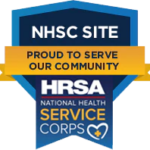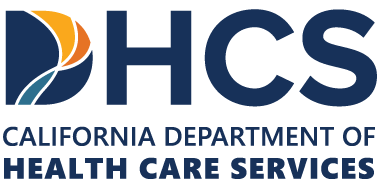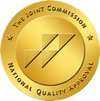ADHD Isn’t Just for Kids
For many adults, ADHD doesn’t show up as hyperactivity. It can, but just as commonly we see it expose itself in the catastrophe of the daily issues. This could be missed deadlines, forgotten appointments, emotional overreactions, and impulsive decisions. Then there is the haunting suspicion that everyone else got the manual for life and you didn’t. You’re not lazy. You’re not broken. You may have adult ADHD, and your therapy could be covered by Medi-Cal.
Understanding Adult ADHD
Your brain is playing jazz when everyone else is playing scales. In other words, you can improvise, move quickly, and like to see the other option. That’s not a failure—it’s a neurological fact.
But if no one ever noticed this in order to diagnose it while you were growing up, if no teacher ever raised a flag, if you were just “the disorganized one” in the family, you may have gone through life with undiagnosed ADHD. And this is a big deal. Because this lack of information may have resulted in needing to create elaborate systems of coping as well as the self-criticism when you couldn’t seem to get it together.
Is Adult Diagnosis for ADHD Common?
It’s more common than we like to admit: adults realizing in their 30s, 40s, or even later that the name for what they’ve been struggling with all along is Attention-Deficit/Hyperactivity Disorder.
And contrary to popular opinion, it doesn’t expire after childhood. In fact, the internal restlessness and executive dysfunction in adults with ADHD can make normal live very tough. It can bring with it anxiety, depression, substance use disorders, and maybe the biggest issue—feeling worthless.
But here’s the good news: Therapy for ADHD in adults works. It can reroute the spiraling inner dialogue, retrain your focus, and help you finally breathe.

Therapy for ADHD in Adults: What Actually Helps?
There are a few types of therapy that are considered most effective for adult ADHD.
CBT
Cognitive Behavioral Therapy (CBT), for instance, focuses on restructuring negative thought patterns, increasing self-awareness, and building practical habits for managing time, tasks, and emotions.
Mindfulness
Mindfulness-based therapies help ground you in the moment—because if you have ADHD, the moment tends to fly away before you realize it happened.
Psychoeducation
And psychoeducation, which sounds boring but is secretly thrilling, gives you language and framework for understanding your brain’s particular wiring.
Professional Therapy for ADHD
But maybe the most critical therapeutic ingredient is this: someone to mirror back to you that your experience makes sense. That you’re not defective. These symptoms are valid and manageable.
At Redwood Counseling, we offer tailored therapy for ADHD in adults that isn’t just “talk it out and go home” therapy. We work with your strengths and build from there—with licensed clinicians who actually understand what ADHD looks like when it’s trying to run your life.
Medi-Cal and Mental Health: Can You Get This Covered?
Here’s a sentence we don’t say often enough: Medi-Cal covers mental health care. If you qualify, you are entitled to therapy, not just crisis care. Through California’s expanded Medi-Cal offerings, behavioral health services like Adult ADHD therapy are available through county mental health plans and managed care providers.
And yes, Redwood Counseling is one of the places that accepts Medi-Cal for these services.
Signs Therapy Might Help You (More Than You Think)
If you’re wondering whether it’s “bad enough” to reach out, consider these signs that therapy might not only help but feel like the missing piece:
- Constant overwhelm or procrastination followed by guilt
- Trouble keeping relationships steady or feeling understood
- Cycling between high productivity and burnout
- Inability to prioritize or follow through on daily responsibilities
- Emotional responses that seem too big or come out of nowhere
- Feelings of failure despite visible achievements
You don’t need to get to a big burnout to qualify for help. Exhaustion counts.
So does frustration, and sadness, and that aching suspicion that life isn’t supposed to feel like this every day.
Get the Medi-Cal Covered Help You Need in Southern California
You’ve done the best you could with the tools you had. That was never the question.
But if you’re ready for new tools—ones that actually fit your brain—Redwood Counseling has them. There’s nothing wrong with your mind. It just might need a little help steering. Call today to get started: 800-662-2873.




